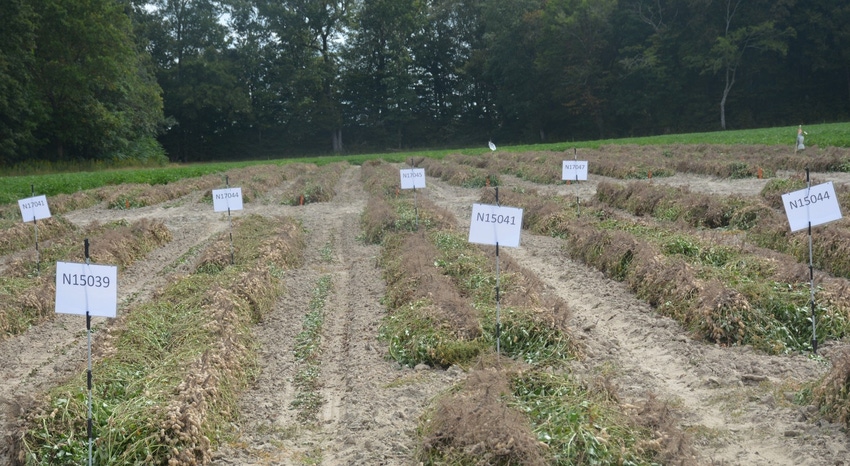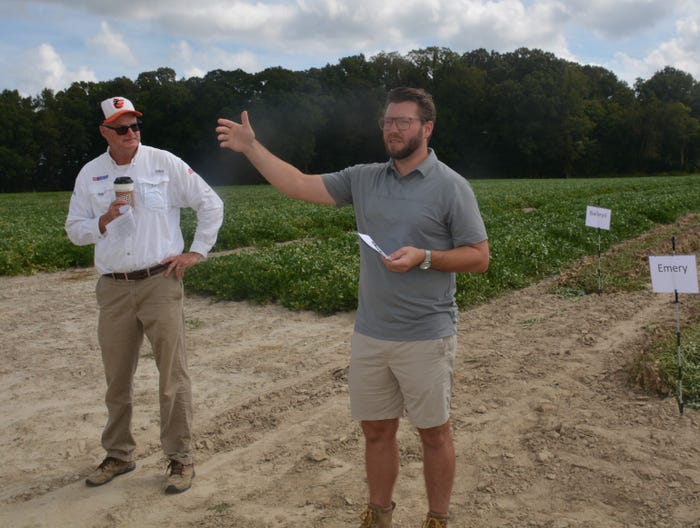
As a peanut breeder, Jeff Dunne knows patience is a virtue.
Dunne has been the peanut breeder at North Carolina State University since 2018, succeeding longtime peanut breeder Tom Isleib who retired in 2018 after 27 years of service. Dunne notes that it takes from 12 to 15 years before a variety is ready for commercial release.
“We are making decisions now, planning for 10 to 12 years in the future. We look at yield and also think about disease and insect pressure. We evaluate and identify traits we want to keep in the breeding program. We evaluate lines that are going to be outstanding and keep those breeding lines as part of our breeding program going forward,” Dunne said at the PVQE (Peanut Variety Quality and Evaluation) tour Sept. 21 at the Taylor Slade Farm in Williamston, N.C
Dunne has implemented genetic marker-assisted technology to hopefully speed up the release of new varieties and be more efficient in selection and resources. In addition, North Carolina State’s peanut breeding program uses greenhouses in Raleigh to make selections on-site over the winter. This allows a line to move into the PVQE program faster.
“We do send our really elite material down to Puerto Rico to get an extra generation so we can get them through the testing phase of our program much more quickly. Before they make their way into the PVQE, we have a number of rounds of testing that we have,” Dunne explained
The breeding process begins with a preliminary trial of 150 to 200 lines that Dunne and his team are evaluating. From there, 100 to 120 lines then move onto the advanced trial if they offer good yield or disease-resistant traits.
“Every single year we are adding material into this advanced trial. Think of it like a reverse triangle, where we are trying to filter it down to just the best material we will eventually place in the PVQE,” Dunne explained.
Those 100 to 120 lines are replicated at three locations across North Carolina at three research stations. After three years’ worth of testing, the exceptional lines then can move into the PVQE program. The PVQE program contains 25 varieties that offer the greatest potential as commercial varieties.
As for the naming of varieties, Dunne explained that Isleib named them after prominent people in the peanut industry. For example, Bailey and Bailey II, a high-oleic version of Bailey, is named in honor of the late Jack E. Bailey, formerly North Carolina State’s breeding program’s collaborating plant pathologist. Bailey and now Bailey II are the most popular Virgina-type peanut varieties planted in North Carolina, South Carolina, and Virginia.
Dunne said he is open to suggestion for names of future varieties from his breeding program.

About the Author(s)
You May Also Like






